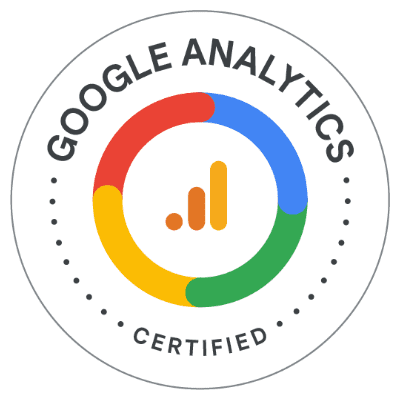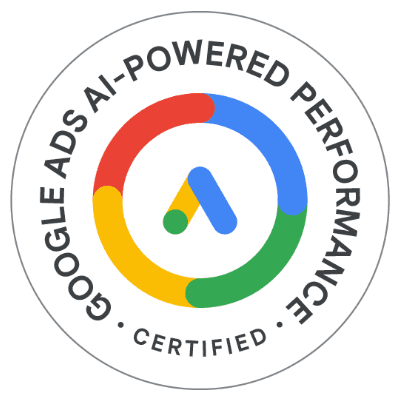How AI Is Changing the SEO Game: What Omaha Businesses Need to Know

Search engines are getting smarter every day, and artificial intelligence is driving this change. AI now powers everything from how Google understands search queries to how websites create and optimize their content. AI is revolutionizing SEO by automating keyword research, enhancing content creation, and providing deeper insights into user behavior and sentiment analysis.
The days of guessing what keywords might work are ending. AI tools can now analyze massive amounts of search data to find the exact terms people use when they search online. These tools also help create content that matches what users want to read, not just what search engines might rank.
Local businesses are seeing major changes too. AI can now read through thousands of customer reviews and understand whether people are happy or upset with a business. This technology helps companies improve their services and manage their online reputation better. The changes happening now will shape how businesses approach search marketing for years to come.
How AI Is Transforming SEO
AI is revolutionizing search engine optimization by changing how search engines process queries, deliver results, and rank content. Search engines now use advanced algorithms to understand user intent better, while traditional SEO methods require updates to remain effective.
The Rise of AI-Powered Search Engines
Google has integrated AI deeply into its search algorithms through systems like RankBrain and BERT. These AI models analyze search queries to understand context and meaning rather than just matching keywords.
RankBrain processes unfamiliar search queries by connecting them to similar searches it has seen before. This helps Google deliver relevant results even for complex or unusual questions.
BERT understands the relationships between words in a sentence. It can grasp nuances like prepositions and context that change a query’s meaning completely.
AI-powered search engines now consider hundreds of ranking factors simultaneously. They evaluate content quality, user experience signals, and semantic relevance in real-time.
These changes mean SEO professionals must focus on creating content that satisfies user intent. Keyword stuffing and other outdated tactics become less effective as AI gets better at understanding natural language.
AI-Generated Answers and SERP Evolution
Search engine results pages have transformed dramatically with AI-generated answer boxes and featured snippets. Google’s AI systems now extract information from web pages to create direct answers above traditional search results.
Featured snippets appear for about 12% of search queries. AI selects and formats the most relevant information from top-ranking pages to answer questions directly.
Knowledge panels display AI-curated information about entities like businesses, people, and places. These panels often satisfy user queries without requiring clicks to external websites.
The introduction of AI-generated answers has created new challenges for website owners. Users can get information without visiting the source, potentially reducing organic traffic.
Content creators must now optimize for both traditional rankings and AI extraction. This includes using clear headings, structured data, and concise answers to common questions.
Impact on Traditional SEO Techniques
Traditional SEO techniques face significant changes as AI becomes more sophisticated in understanding content quality and user intent. Simple keyword optimization strategies no longer guarantee high rankings.
Keyword research has evolved beyond search volume and competition metrics. AI tools now analyze user intent, semantic relationships, and content gaps that humans might miss.
Content optimization requires understanding how AI evaluates expertise, authority, and trustworthiness. Pages must demonstrate clear value and accuracy to rank well.
Technical SEO remains important but focuses more on user experience signals. Page speed, mobile optimization, and structured data help AI systems understand and rank content properly.
Link-building strategies must emphasize quality over quantity. AI can detect artificial link schemes and low-quality backlinks more effectively than before.
AI-Powered Keyword Research
Machine learning algorithms now analyze search intent with precision that traditional methods cannot match. AI-powered keyword research tools help marketers identify competitor gaps and predict emerging search trends before they peak.
Leveraging Machine Learning for Intent Analysis
Machine learning transforms how marketers understand what users want when they search. AI systems analyze patterns in search behavior to determine if someone wants to buy, learn, or find a specific website.
Intent Categories AI Identifies:
- Informational – Users seeking knowledge or answers
- Navigational – Searches for specific websites or brands
- Transactional – Purchase-ready queries
- Commercial – Research before buying
AI keyword research tools examine semantic relationships between words. They understand that “best running shoes” and “top athletic footwear” target similar intent despite different phrasing.
Google’s AI systems already use this intent analysis in search results. Marketers who align their keyword strategy with these patterns see better SERP rankings.
The technology goes deeper than surface-level keyword matching. It analyzes user behavior data to predict which terms will convert visitors into customers.
Competitive Keyword Monitoring with AI
AI systems track competitor keyword performance in real-time without manual spreadsheet updates. These tools identify which terms competitors rank for and spot gaps in their strategies.
Key Competitive Insights AI Provides:
- Keywords competitors are gaining or losing rankings for
- New content topics competitors are targeting
- Seasonal patterns in competitor keyword focus
- SERP feature opportunities competitors are missing
Automated competitive analysis reveals when competitors launch new campaigns or change their SEO focus. This allows marketers to respond quickly to market shifts.
AI tools can analyze dozens of competitors simultaneously. They track ranking changes across thousands of keywords that would take weeks to monitor manually.
The systems alert marketers when competitors start ranking for new terms. This early warning helps businesses adapt their strategies before losing market share.
Predicting Search Trends Using AI
AI analyzes historical search data to forecast which keywords will gain popularity in the coming months. These predictions help marketers create content before trends peak rather than chasing them afterward.
Trend Prediction Factors AI Considers:
- Seasonal search patterns from previous years
- Social media conversation volume
- News events and cultural shifts
- Industry announcement cycles
Predictive AI tools identify emerging topics when search volumes are still low. Early adopters can establish authority before competition increases.
The technology examines correlations between different data sources. It might connect rising social media mentions with future Google search increases.
These predictions work especially well for seasonal businesses. AI can forecast when “holiday decorations” or “tax software” searches will surge based on multi-year patterns.
Google’s AI-powered search updates make trend prediction even more valuable. Marketers who anticipate algorithm changes can adjust their keyword strategies proactively.
AI-Enhanced Content Optimization
Modern AI tools transform how businesses create and refine content for search engines. These systems automatically improve readability, personalize content for different audiences, and handle technical SEO tasks that once required manual effort.
Personalization at Scale with AI
AI systems analyze user behavior patterns to create tailored content experiences for different audience segments. Machine learning algorithms study search queries, click-through rates, and engagement metrics to determine what content resonates with specific user groups.
Content management systems now use AI to automatically adjust headlines, descriptions, and even entire sections based on visitor demographics. A fitness website might show different workout recommendations to beginners versus advanced athletes visiting the same page.
Dynamic content personalization includes:
- Location-based content adjustments
- Device-specific formatting
- Time-sensitive messaging
- User journey stage customization
Google AI systems reward websites that provide relevant, personalized experiences. Search algorithms can detect when content matches user intent better than generic alternatives.
E-commerce sites use AI to modify product descriptions based on seasonal trends and regional preferences. This approach increases engagement rates and improves search rankings for location-specific queries.
Automating On-Page SEO Tasks
AI content optimization tools now handle time-consuming SEO tasks automatically. These systems analyze competitor content, identify keyword gaps, and suggest improvements without human intervention.
Automated title tag and meta description generation saves hours of manual work. AI tools create multiple variations and test performance to determine the most effective options.
Key automated SEO functions:
- Keyword density analysis – Prevents over-optimization
- Internal linking suggestions – Connects related content automatically
- Schema markup implementation – Adds structured data
- Image alt text generation – Improves accessibility and SEO
Modern AI systems identify on-page SEO opportunities by comparing content against top-ranking competitors. They spot missing topics, suggest additional keywords, and recommend structural improvements.
Content optimization platforms automatically update existing articles when search trends change. This keeps older content relevant and maintains search rankings over time.
Readability and User Experience with AI
AI-powered writing assistants improve content clarity by identifying complex sentences and suggesting simpler alternatives. These tools analyze reading level and adjust vocabulary to match the target audience’s capabilities.
Natural language processing detects passive voice, run-on sentences, and unclear phrasing. The systems provide real-time suggestions to improve flow and comprehension.
AI readability improvements:
- Sentence length optimization
- Complex word substitution
- Paragraph structure analysis
- Transition phrase suggestions
User experience metrics like bounce rate and time on page improve when AI optimizes content structure. Search engines recognize these positive signals and boost rankings accordingly.
Advanced AI tools analyze how users scroll through pages and identify where readers typically stop engaging. They suggest content restructuring to maintain attention throughout the entire article.
Voice search optimization benefits from AI readability improvements. Content written in conversational, easy-to-understand language performs better for spoken queries and featured snippets.
Adapting to AI-Driven SERPs and Backlinks
Search engines now use AI to generate instant answers and evaluate link quality differently than before. Website owners must adjust their content strategy to appear in AI-generated snippets while building backlinks that AI algorithms recognize as valuable.
Optimizing for AI Snippets and Featured Content
Google’s AI now creates direct answers at the top of search results. These AI-generated answers pull information from multiple websites to give users quick responses.
Content needs specific formatting to catch AI’s attention. Use clear headings, bullet points, and numbered lists. Answer questions directly in the first paragraph.
Key formatting elements that work:
- Short, direct sentences
- Question-and-answer format
- Numbered steps for processes
- Tables with clear data
- Bold text for key points
AI systems prefer content that matches how people ask questions. Write like you’re answering a friend’s question. Use the same words people type into search boxes.
AI is fundamentally changing how people search and consume information. Websites that structure content for AI parsing get more visibility in these prominent answer boxes.
Evolving Backlink Strategies in the Age of AI
AI algorithms now judge backlink quality using more complex signals than just domain authority. They analyze the context around links and the relevance between linked pages.
Modern backlink factors AI considers:
| Factor | Impact |
|---|---|
| Content relevance | High |
| User engagement on the linking page | Medium |
| Link placement context | High |
| Anchor text naturalness | Medium |
Focus on earning links from pages that truly relate to your content. A backlink from a relevant blog post carries more weight than one from an unrelated high-authority site.
AI can detect artificial link patterns better than before. Natural linking happens when content genuinely helps readers. Create resources that other websites want to reference.
The timing and frequency of new backlinks also matter. AI-powered SEO tools can identify natural link-building patterns versus manipulative schemes. Steady, organic growth works better than sudden link bursts.
Local Reviews and AI Sentiment Analysis
AI transforms how businesses understand customer feedback and manage their online reputation. AI-powered tools help detect fake reviews and provide deeper insights into customer sentiment than traditional methods.
Harnessing AI for Local SEO Insights
AI tools analyze customer reviews to extract valuable data about business performance. These systems identify patterns in feedback that humans might miss.
The technology processes thousands of reviews quickly. It spots trends in customer complaints and praise across different periods.
Key AI insights include:
- Most mentioned product features
- Common service issues
- Peak complaint times
- Customer satisfaction trends
Google uses AI-powered search algorithms that consider review sentiment for local rankings. Businesses with consistently positive sentiment scores often rank higher in local search results.
AI can identify which reviews mention specific locations or services. This helps multi-location businesses understand performance differences between stores.
The data helps businesses make informed decisions about operations. They can address common issues before they affect more customers.
Sentiment Analysis of User Reviews
AI sentiment analysis tools examine customer reviews to determine emotional tone and customer satisfaction levels. These systems go beyond star ratings to understand the actual feelings behind reviews.
The technology categorizes reviews as positive, negative, or neutral. It also identifies specific emotions like frustration, excitement, or disappointment.
Sentiment analysis reveals:
- Overall customer satisfaction trends
- Specific aspects customers love or hate
- Emotional triggers in customer experiences
- Changes in sentiment over time
AI can process reviews in multiple languages. This helps businesses serving diverse communities understand all customer feedback.
The analysis identifies subtle sentiment changes that manual review reading might miss. A three-star review might contain very positive language, indicating higher satisfaction than the rating suggests.
Businesses use this data to improve customer experience. They can focus on areas that generate the most negative sentiment.
Enhancing Online Reputation Management
AI streamlines reputation management by automating review monitoring and response processes. AI-powered reputation management tools help businesses respond to reviews more effectively and consistently.
These systems can draft response templates based on review content. They suggest appropriate responses for different types of feedback.
AI reputation features include:
- Automated review alerts
- Response suggestion generation
- Fake review detection
- Competitor review analysis
The technology monitors reviews across multiple platforms simultaneously. It tracks Google reviews, Yelp, Facebook, and industry-specific review sites.
AI identifies fake or spam reviews by analyzing writing patterns and reviewer behavior. This helps businesses report illegitimate reviews for removal.
Smart systems prioritize which reviews need immediate attention. Negative reviews from frequent customers get flagged as high priority.
Businesses can maintain a consistent brand voice in responses. AI ensures reply tone matches company communication standards across all platforms.
Frequently Asked Questions
AI transforms SEO through automated keyword discovery, content optimization algorithms, and review sentiment tracking. These technologies help businesses rank higher in search results and better understand customer feedback patterns.
How can AI improve keyword research for SEO strategies?
AI-powered keyword research tools analyze large datasets to find long-tail keywords with search volume and user intent data. They work faster than manual research methods.
These tools identify question-based queries that help websites appear in featured snippets. They also find commercial keywords that can increase sales conversions.
AI keyword research automation saves time by eliminating repetitive manual tasks. The technology provides deeper insights into keyword difficulty and competition levels.
AI tools create personalized keyword difficulty scores for specific websites. This helps businesses focus on keywords they have a better chance of ranking for.
What are the benefits of using AI for content optimization in SEO?
AI evaluates existing content against high-ranking articles to find improvement opportunities. It suggests specific changes like adding more keywords or external links.
The technology provides data-backed recommendations for making content more SEO-friendly. AI tools can optimize meta tags, meta descriptions, and alt text automatically.
AI content optimization enables dynamic updates through constant monitoring. This keeps content fresh and competitive in search results.
AI personalizes content for different user groups based on their behaviors and preferences. This approach increases engagement rates and conversion potential.
How does AI influence search engine algorithms and ranking factors?
Search engines use AI to better understand the user intent behind search queries. This affects how they match content to what people are looking for.
AI helps search engines process natural language more effectively. Voice search and conversational queries become more accurate as a result.
Machine learning algorithms adapt to changes in user behavior patterns. They adjust ranking factors based on what content performs best for specific search types.
AI search optimization requires structured data and schema markup for better visibility. These elements help search engines understand content context.
What AI tools are available for assessing and improving local SEO?
AI-powered audit tools crawl websites to identify technical issues that hurt local search rankings. They find broken links, duplicate content, and mobile optimization problems.
Schema markup generators create location-based structured data automatically. This helps search engines display business information in local search results.
AI tools analyze competitor local SEO strategies to find ranking opportunities. They identify gaps in local keyword targeting and content approaches.
Automated monitoring systems track local search performance across different geographic areas. They alert businesses to ranking changes and optimization needs.
How can sentiment analysis from online reviews enhance local SEO efforts?
AI sentiment analysis tools read customer reviews to identify positive and negative themes. This data helps businesses understand what customers value most.
The technology tracks review sentiment trends over time to spot emerging issues. Businesses can address problems before they hurt their local search rankings.
AI categorizes review content by specific business aspects like service quality or product features. This creates actionable insights for improvement strategies.
Sentiment data helps businesses respond to reviews more effectively. AI can suggest response strategies based on the emotional tone of customer feedback.
What impact does AI have on the future practices of SEO professionals?
Over 44% of SEO tasks like content creation and keyword research are now automated by AI tools. This trend will continue to grow in coming years.
SEO professionals must learn to work with AI tools rather than replace them entirely. The technology handles repetitive tasks while humans focus on strategy and creativity.
AI provides more detailed performance analytics and predictive insights. SEO experts can make better decisions based on data-driven recommendations.
The technology enables non-technical marketers to perform advanced SEO tasks. This democratizes access to sophisticated optimization strategies across different skill levels.
Omaha SEO Company | Providing the BEST SEO Services in Omaha
We are a premier internet digital marketing company providing:
- AI-Powered SEO & Keyword Optimization
- Custom Website Design & Development
- Data-Driven Social Media Marketing
- Targeted Google Ads & PPC Campaigns
- Local SEO & Geotargeting Strategies
- Email Marketing
- Marketing Campaigns
- Digital Marketing Strategy
- And More
Our marketing services goal is to continually over-deliver to every client we work with. We are a team of SEO experts, web design wizards, social media masterminds, and online reputation management specialists. With over 10 years of experience, we have developed a system that ensures the success of our clients with our products and services.
Our SEO agency is here to ensure your website is ranking high. Our goal is the top position. Exactly where the best, most qualified traffic is. Give us a call for your FREE Consultation.













